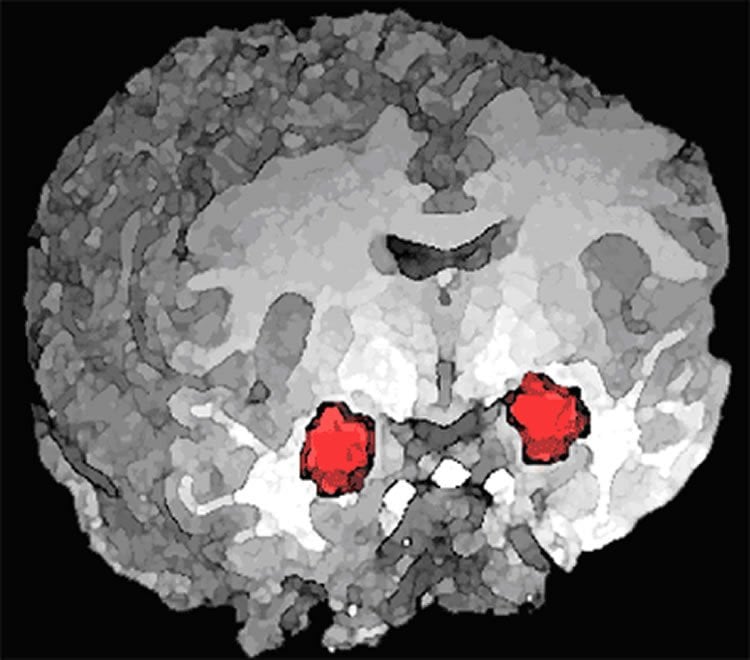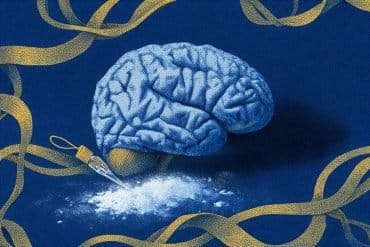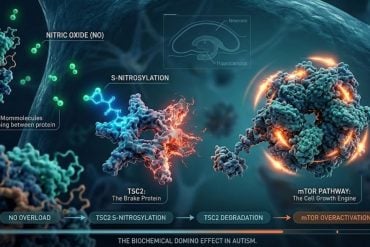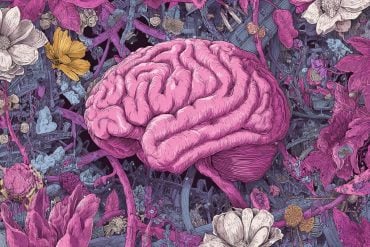Brain research has demonstrated that psychopaths exhibit reduced control over their emotional actions. Researchers from the Donders Institute at Radboud University discovered that the quantity of testosterone a person produces influences the parts of the brain responsible for regulating emotions. The findings provide starting points for the treatment of psychopaths. The results were published in the online journal eNeuro.
Professor of Psychopathology Karin Roelofs and her colleagues at the Donders Institute for Brain, Cognition and Behaviour investigated a group of 15 psychopathic criminal offenders in a joint research project with the Pompe Foundation for forensic psychiatry. The researchers were particularly interested in how the supply of testosterone influenced the regulation of emotions.
Cold-blooded and impulsive
Among the general public, psychopaths are mainly known for their planned and targeted form of criminality. They are generally classed as calculating and set to work with a high degree of apparent cold-bloodedness. Less well known – but no less disturbing – is that psychopaths exhibit impulsive behaviour and experience problems in regulating their emotions. These problems often lead to difficulty in social contacts and to police arrest because at vital moments they lose their cool. Why is that?
Healthy persons and criminal offenders
During Roelofs’ research, criminal offenders and healthy study subjects carried out a task in an MRI scanner that measured the response time of the automatic tendency to move the joystick towards oneself upon seeing images of ‘friendly’ faces or to push it away upon seeing ‘angry’ faces.

In the healthy control persons, the researchers saw a normal pattern of communication between the prefrontal cortex and the emotion centre, the amygdala, if they had to control their reflex by making the opposite movement with a joystick (‘angry’ towards themselves, ‘friendly’ away from themselves). Such counter-intuitive joystick movements require control and that was very clearly observable in the brain activity.
Explanation and treatment
Karin RoelofsKarin Roelofs: ‘However in people with psychopathy, and especially in patients with high endogenous testosterone levels, significantly less activity in the prefrontal brain regions and less communication between the prefrontal brain and the amygdala was observed. Thus there was less communication between emotion control regions. The research results provide a neuro-hormonal explanation for emotional regulation problems in psychopathic patients.’
Furthermore, the results provide starting points for the treatment of psychopaths by influencing the amount of testosterone in their bodies.
Funding: The article by Karin Roelofs and her group was realised thanks to a Vidi grant from NWO’s Talent Scheme ‘Vernieuwingsimpuls’.
Source: Prof. Karin Roelofs – Donders Institute
Image Source: The image is in the public domain
Original Research: Abstract for “Testosterone modulates altered prefrontal control of emotional actions in psychopathic offenders” by Inge Volman, Anna Katinka Louise von Borries, Berend Hendrik Bulten, Robbert Jan Verkes, Ivan Toni, and Karin Roelof in eNeuro. Published online January 20 2016 doi:10.1523/ENEURO.0107-15.2016
Abstract
Testosterone modulates altered prefrontal control of emotional actions in psychopathic offenders
Psychopathic individuals are notorious for their controlled goal-directed aggressive behavior. Yet, during social challenges, they often show uncontrolled emotional behavior. Healthy individuals can control their social emotional behavior through anterior prefrontal cortex (aPFC) down-regulation of neural activity in the amygdala, with testosterone modulating aPFC-amygdala coupling. This study tests whether individual differences in this neuro-endocrine system relate to the paradoxical lack of emotional control observed in human psychopathic offenders. Emotional control was operationalized with an fMRI-adapted approach-avoidance (AA) task requiring rule-driven control over rapid emotional responses. Fifteen psychopathic offenders and 19 matched healthy controls made approaching and avoiding movements in response to emotional faces. Control of social emotional behavior was required during affect-incongruent trials, when participants had to override affect-congruent, automatic action tendencies and select the opposite response. Psychopathic offenders showed less control-related aPFC activity and aPFC-amygdala coupling during trials requiring control of emotional actions, when compared to healthy controls. This pattern was particularly pronounced in psychopathic individuals with high endogenous testosterone levels. These findings suggest that reduced prefrontal coordination underlies reduced behavioral control in psychopathic offenders during emotionally provoking situations. Even though the modest sample size warrants replication, the modulatory role of endogenous testosterone on the aPFC-amygdala circuit suggests a neurobiological substrate of individual differences, relevant for advancement of treatment and reduction of recidivism.
Significance Statement: Psychopathic criminals are commonly seen as instrumentally abusive and emotionally callous, yet social challenges often trigger uncontrolled emotional behavior in those individuals. This study shows how this paradoxical aspect of psychopathy relates to altered neuro-endocrine interactions between testosterone and the cerebral circuit coordinating emotional action tendencies. The anterior prefrontal cortex, a region necessary for controlling emotional behavior, showed blunted responses and reduced connectivity with the amygdala in psychopathic criminals engaged in controlling their emotional action tendencies. This cerebral pattern was strongest in psychopathic individuals with high endogenous testosterone. This neuroendocrine signature of altered emotional control highlights the relevance of considering testosterone level of individual psychopathic patients during treatment of their impulsive behavior.
“Testosterone modulates altered prefrontal control of emotional actions in psychopathic offenders” by Inge Volman, Anna Katinka Louise von Borries, Berend Hendrik Bulten, Robbert Jan Verkes, Ivan Toni, and Karin Roelof in eNeuro. Published online January 20 2016 doi:10.1523/ENEURO.0107-15.2016






